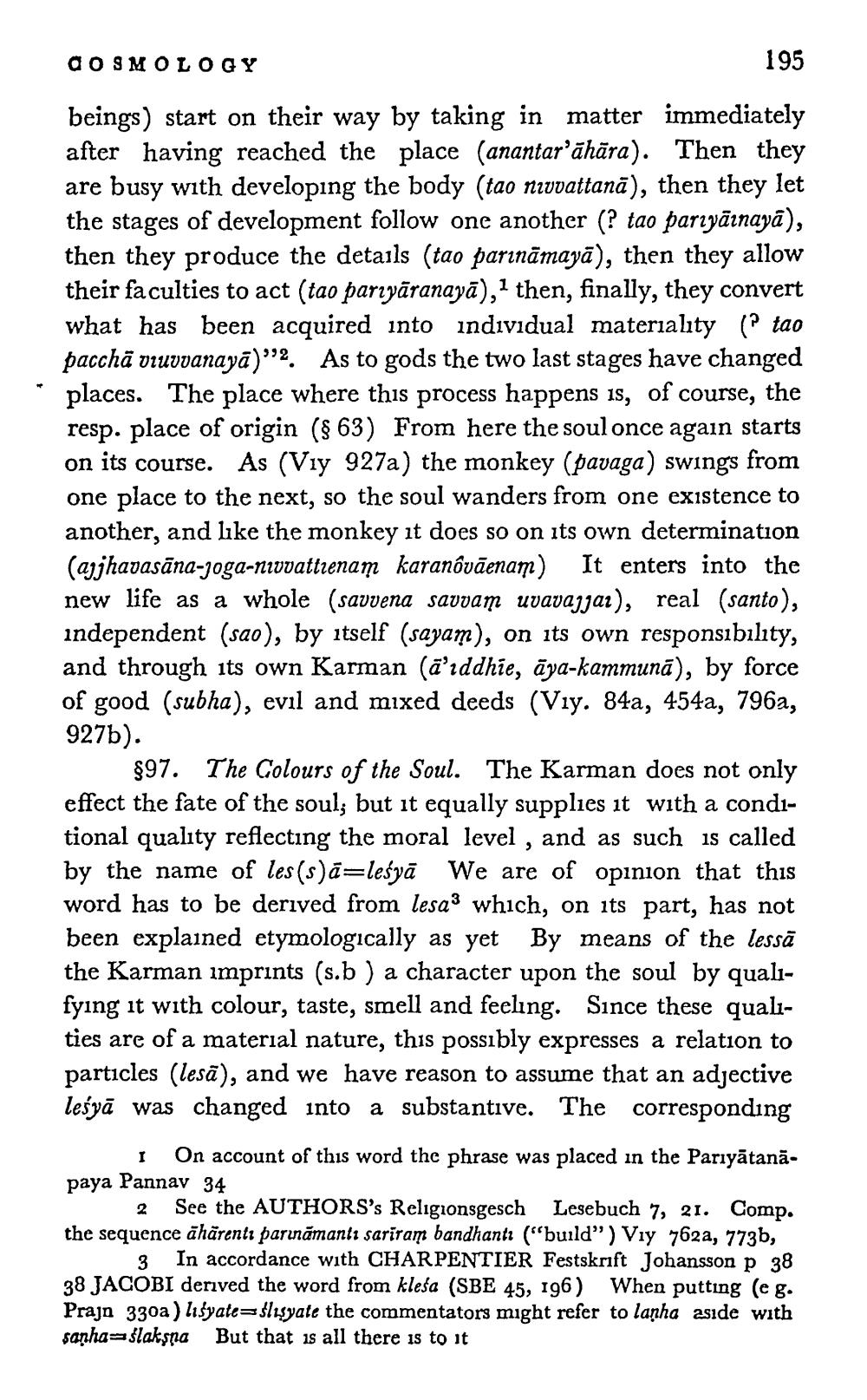________________
COSMOLOGY
195 beings) start on their way by taking in matter immediately after having reached the place (anantar'āhāra). Then they are busy with developing the body (tao nivvattanā), then they let the stages of development follow one another (? tao parżyāınayā), then they produce the details (tao parināmayā), then they allow their faculties to act (tao parıyāranayā),1 then, finally, they convert what has been acquired into individual materiality (? tao pacchä viuvvanayā)"2. As to gods the two last stages have changed places. The place where this process happens is, of course, the resp. place of origin ($ 63) From here the soul once again starts on its course. As (Viy 927a) the monkey (pavaga) swings from one place to the next, so the soul wanders from one existence to another, and like the monkey it does so on its own determination (ajjhavasāna-joga-nivattrenam karanôvāenam) It enters into the new life as a whole (savvena savvam uvavajjai), real (santo), independent (sao), by itself (sayam), on its own responsibility, and through its own Karman (ä'rddhie, āya-kammunā), by force of good (subha), evil and mixed deeds (Viy. 84a, 454a, 796a, 927b).
$97. The Colours of the Soul. The Karman does not only effect the fate of the soul; but it equally supplies it with a conditional quality reflecting the moral level, and as such is called by the name of les(s)ā=leśyā We are of opinion that this word has to be derived from lesa3 which, on its part, has not been explained etymologically as yet By means of the lessä the Karman imprints (s.b) a character upon the soul by qualıfying it with colour, taste, smell and feeling. Since these qualities are of a material nature, this possibly expresses a relation to particles (lesã), and we have reason to assume that an adjective leśyā was changed into a substantive. The corresponding
1 On account of this word the phrase was placed in the Pariyātanāpaya Pannav 34
2 See the AUTHORS's Religionsgesch Lesebuch 7, 21. Comp. the sequence āhārenti parināmantı sariram bandhantı (“'build") Viy 7622, 773b,
3 In accordance with CHARPENTIER Festskrift Johansson p 38 38 JACOBI derived the word from kleša (SBE 45, 196) When putting (e g. Prajn 330a) liśyate=slisyate the commentators might refer to lanha aside with sanha=slaksna But that is all there is to it




